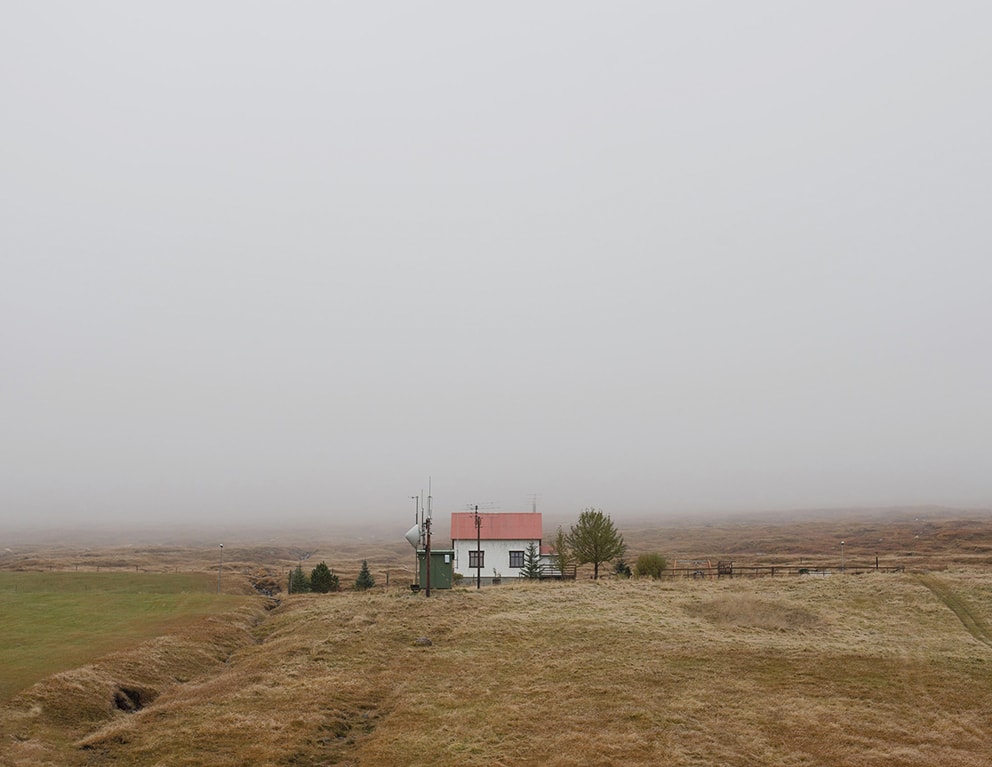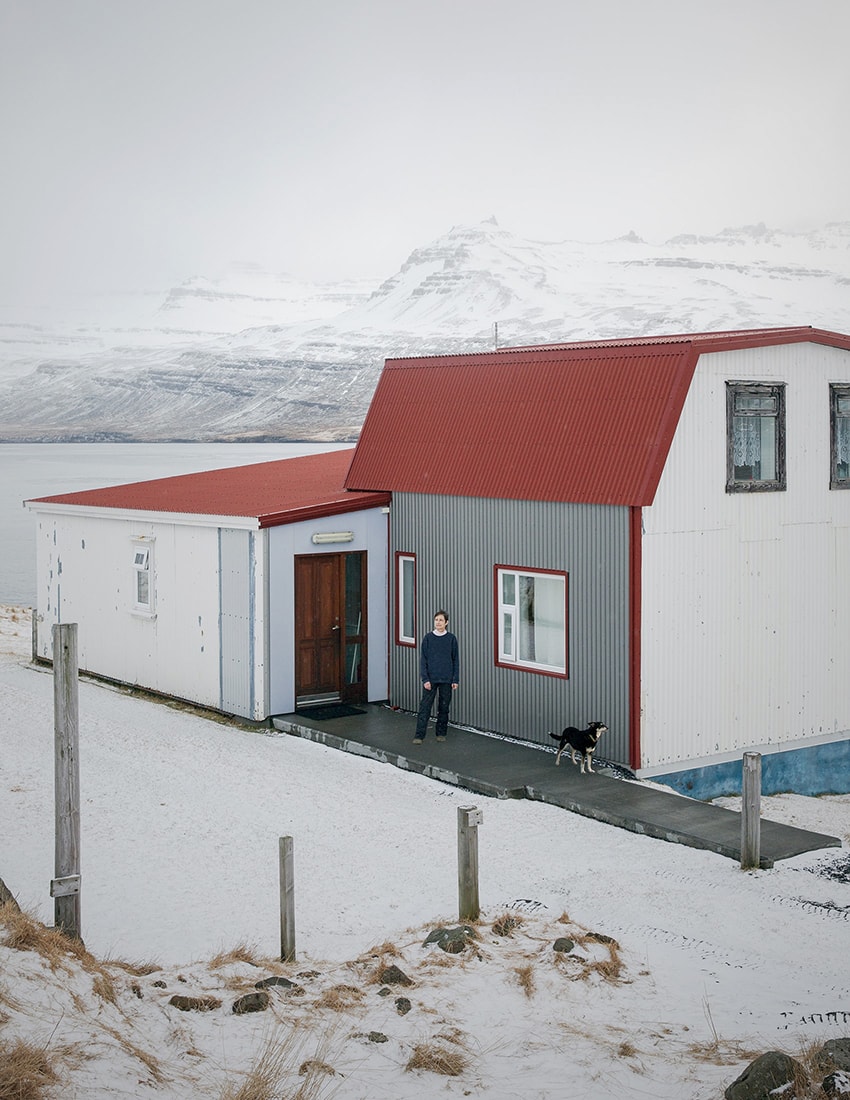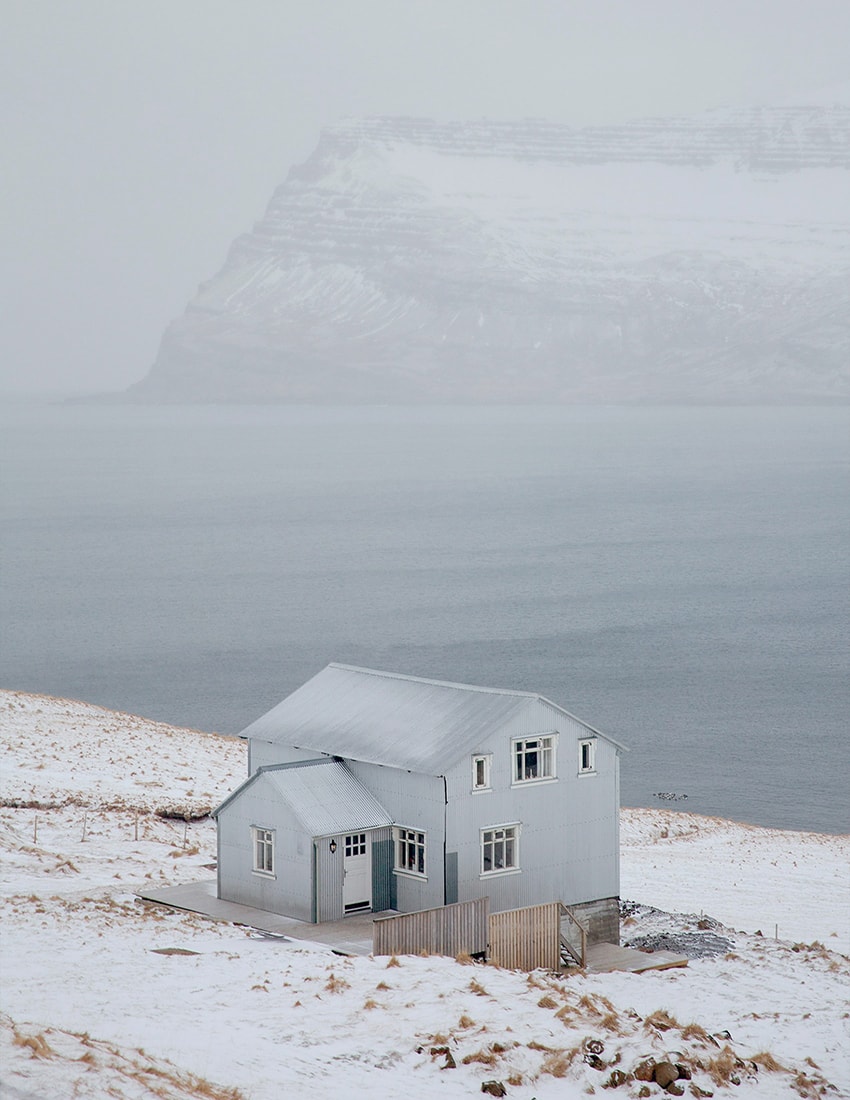
The Priest’s Ravine
At the edge of the world, where Iceland's fjords are shaped by mist and wind, lies Solbrekka – a village that is little more than a whisper in the vastness.
During the heyday of fishing and especially whaling around 1900, up to 200 people worked here in the world’s largest whaling station, built by Norwegian fishermen. But with the end of this era, the people disappeared as well. Today, only about eight souls remain here permanently – a small community that embraces isolation, finding a deeper connection to nature within it. In this solitude, far from the restlessness of modern life, time transforms: it does not pass – it lingers.
Marzena Skubatz captures the atmosphere of Solbrekka, its memories, and its way of being. Her photographs tell of a place that is more than just a geographical location – it is a state of existence. The few remaining inhabitants live in rhythm with the tides. Between the constant murmur of the fjord and the relentlessness of winter, a peculiar silence arises – not empty, but full of meaning, full of stories.
Yet The Priest’s Ravine is more than a tribute to this place and its people. It is a meditation on transience, on holding on and letting go. This contemplation echoes Martin Heidegger’s concept of Being-toward-death, where he suggests that an authentic existence emerges from an awareness of our finitude. To be aware of the inevitable passing of all things is not to despair, but to live with a deeper sense of meaning and presence. What remains when everything disappears? And what does home mean in a world that keeps moving forward?

















































